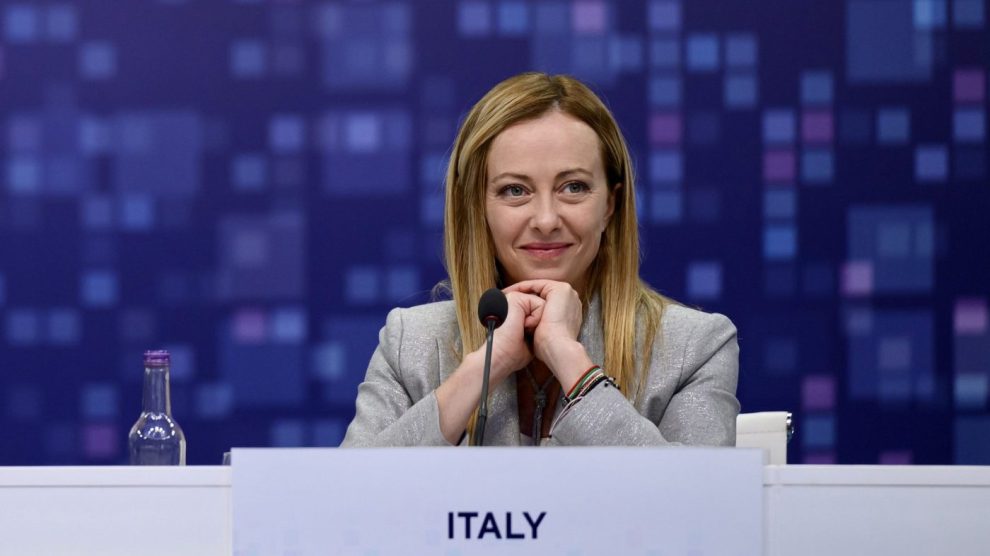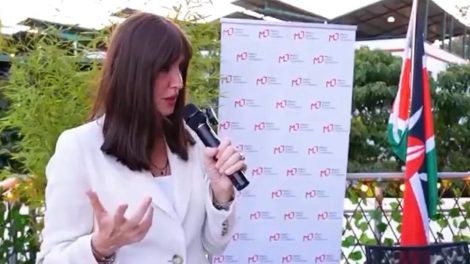Decoding Meloni. Italy’s Prime Minister has passed the symbolic milestone of 1,000 days in office, making her one of the longest-serving postwar leaders of the Italian Republic.
- It offers a moment to assess her foreign policy record. We do so through the lens of Valbona Zeneli, a senior fellow at the Europe Center of the Atlantic Council, who remarks:
- “Meloni has positioned Italy as a credible and reliable partner within the Euro-Atlantic alliance.”
- Yes, but: “The real challenge remains economic. Without structural reforms, Italy’s resilience could quickly fade.”
From outsider to pillar of the Alliance. According to Zeneli, Meloni has transitioned from a once Eurosceptic figure to a stable and recognisable actor on the international stage.
- Her “unequivocal support” for Ukraine swiftly dispelled initial concerns over Italy’s transatlantic orientation.
- The Rome-hosted Ukraine Recovery Conference, co-organised with Kyiv’s President Volodymyr Zelensky, yielded more than €10 billion in pledges and set new standards on recovery and defence as a strategic pairs.
- The expert notes that Meloni has projected diplomatic consistency and positioned Italy as a reliable player in global affairs by capitalising on her government’s internal stability.
Global powers: NATO, yes. China, no. Zeneli underlines that Meloni has reaffirmed Italy’s strategic commitment to NATO, pledging to meet the 2% of GDP target for defence spending by 2025, with plans to raise it to 5% by 2035 after the recent alliance’s summit.
- In late 2023, her government officially withdrew from China’s Belt and Road Initiative, citing a lack of tangible benefits and security risks.
- Rome has since advocated for fairer trade rules with Beijing and expressed concern over China’s indirect support for Russia’s war effort.
- Italy has also embraced the India–Middle East–Europe Economic Corridor (IMEC), framing it as a strategic asset for the Indo-Mediterranean and part of a broader “Global Mediterranean” vision.
Italy–U.S.: A rising profile in Washington. Meloni was the first EU leader to visit Donald Trump after returning to the White House.
- She later hosted a trilateral summit in Rome with U.S. Vice President J.D. Vance and European Commission President Ursula von der Leyen, aimed at recalibrating transatlantic cooperation in this commercial-tension phase.
- According to Zeneli, this approach has “further strengthened Italy’s role in Washington’s strategic calculus,” particularly through alignment on China, energy, and trade.
What’s next: The case for reforms. Zeneli identifies economic fragility as the government’s most pressing vulnerability.
- Public debt remains at 145% of GDP, and growth is sluggish.
- Thus far, the recovery has relied heavily on one-off measures rather than long-term structural changes.
- The Atlantic Council analyst argues that Italy must now focus on revitalising innovation, attracting private investment, unlocking EU funds, and promoting social inclusion and democratic freedoms.





